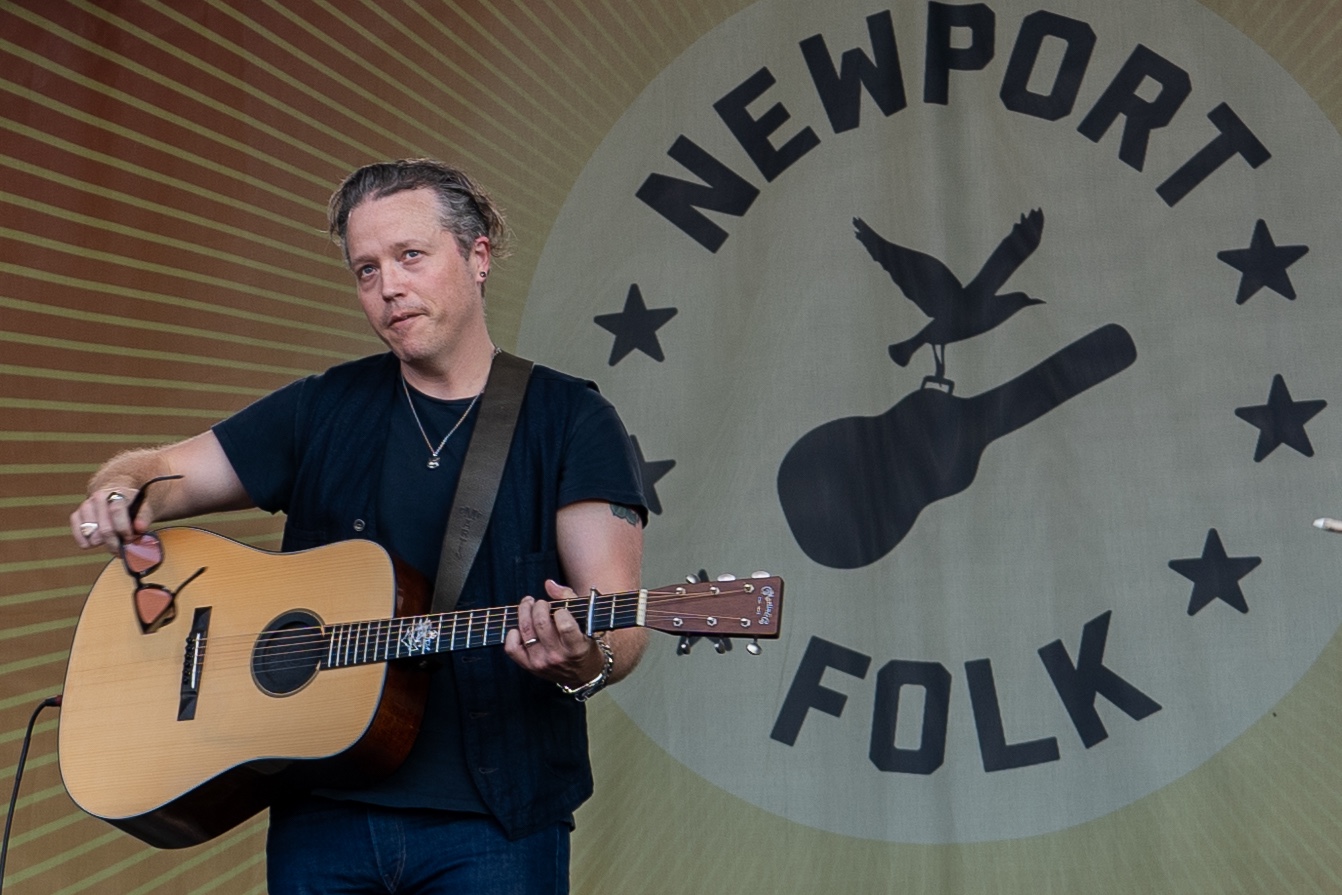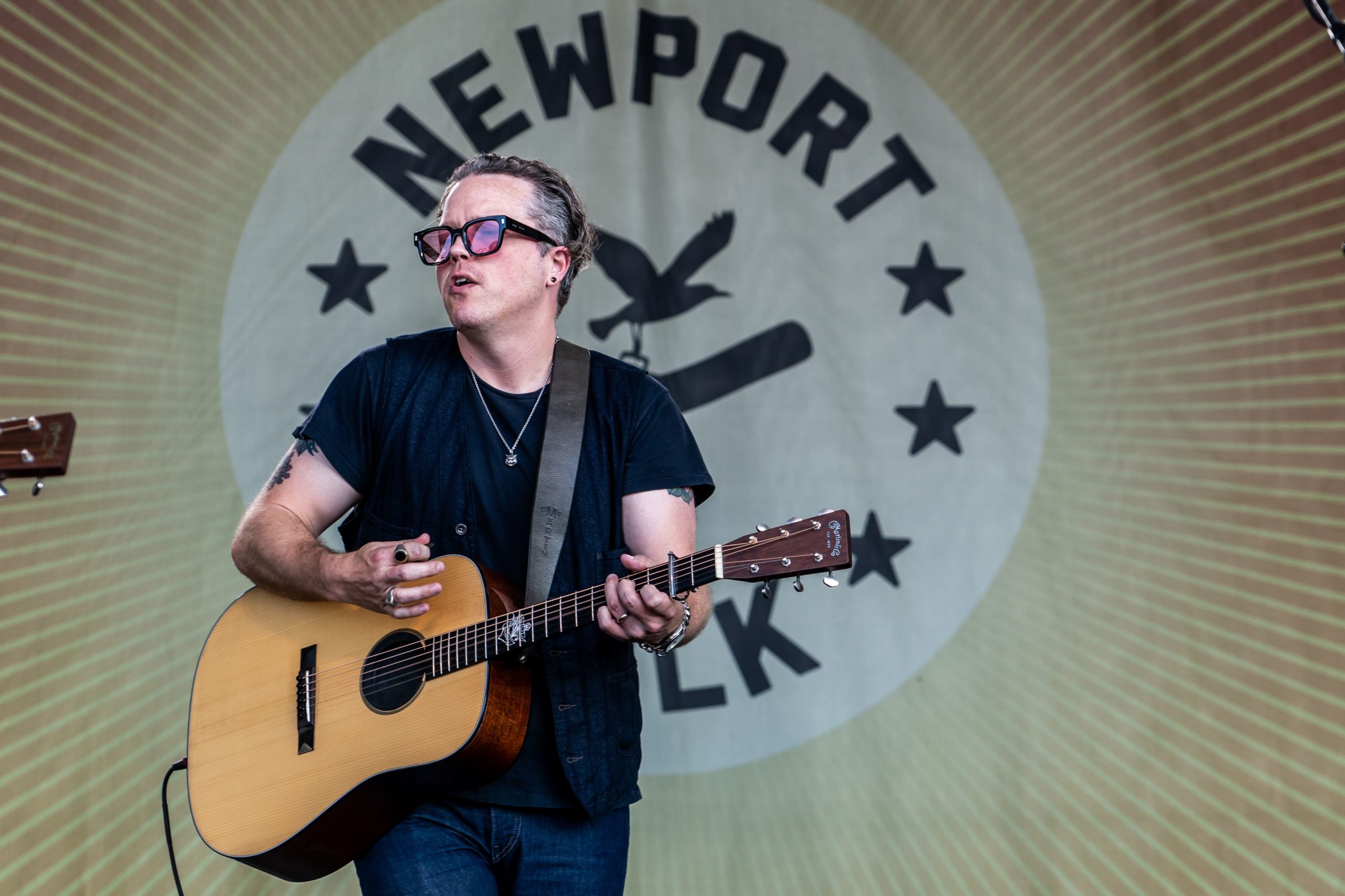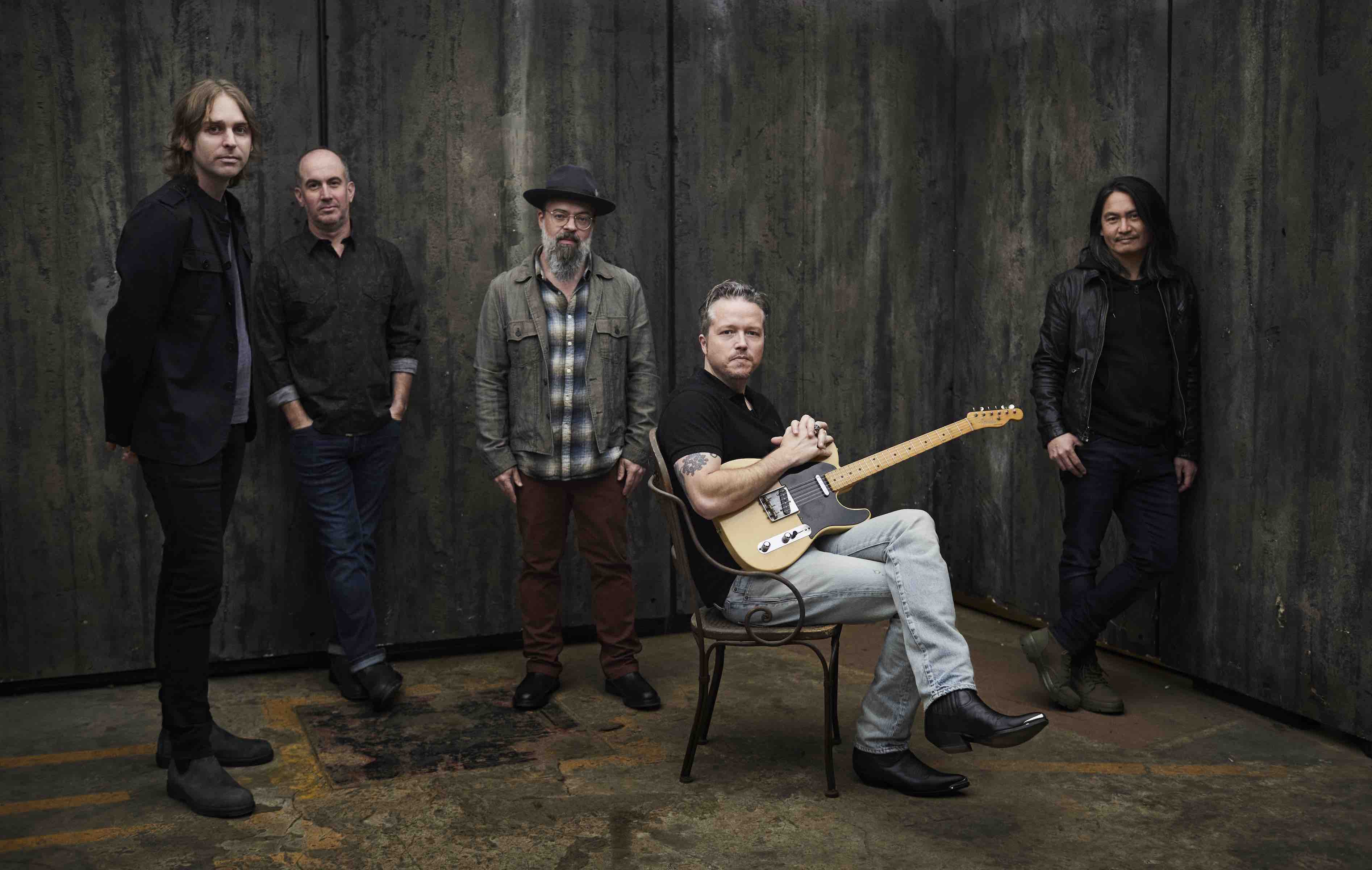There are few songwriters in contemporary music more reliable than Jason Isbell. Since his days in Drive-By Truckers, Isbell has been spinning weather-beaten tales of triumph, regret, and every mixed emotion in between, and over two decades into his recording career he’s as busy as ever. Not only is he preparing to release his ninth studio album, Weathervanes, but he’s also the subject of the recent HBO doc Running with Our Eyes Closed, which tracks the tumultuous recording process of his 2020 record Reunions with his band The 400 Unit. Add that to his upcoming debut as a film actor in the hotly anticipated Martin Scorsese film Killers of the Flower Moon and you have a man with as many irons in the fire as the kind of insightful blacksmith that might pop up in one of his songs.
As our recent conversation progresses, it’s clear that even after all these endeavors—and the attention they bring—Isbell is as clear-headed as ever about both his music and his life. As always, Weathervanes is an album littered with characters who inhabit every corner of the American psyche, all struggling with varying degrees of success to reach some sort of contentment. For Isbell, Weathervanes is often a celebration of the kind of comfort that comes with experience. There’s nothing left to prove for him and his band, and yet the songs still keep coming.
In our conversation below, we discuss, among other things, the importance of awareness, his first foray into the movie business, and remembering the past for what it really is.
How did the recording process for Weathervanes compare to the process we see playing out in your new documentary, which was for 2020’s Reunions?
It was a lot easier, ’cause there weren’t a bunch of cameras around. I love the documentary and I’m glad it turned out the way it did, but it was a tough process. It’s hard to work in any kind of creative setting when people are around documenting everything. I was pretty grateful to have a break from that this time around. Also, I produced this record myself, and a lot of what we did was just play together. I didn’t do a lot of steering the ship unless I saw that it was headed toward the rocks. It was a really enjoyable experience. We didn’t have any major fights or blow-ups this time around, we just got in the studio and had fun.
When you saw the first cut of the movie, how did that affect how you went into the recording process this time?
The first time I watched the movie I was just trying to see if it was any good. I don’t know exactly how this happened, but I got to a point a few years ago where I can listen to a record and take myself out of the equation as one of the people who created it. That’s harder to do with a movie where I’m on screen the whole time. The first time through I was watching just to make sure it was worth the work, because I wanted it to be something that stood on its own and wasn’t just self-referential and didn’t just serve to promote the artist or the music we were making, but told a story. I think Sam Jones did a really good job with that.
“I wanted to go into the studio and accept the fact that it’s a lot of pressure. In the past I ignored that, but this time I wanted to embrace it and admit, yeah, I am afraid, so let’s go from there.”
But yeah, I was thinking that we couldn’t do the same thing the next time or we just weren’t going to have any fun. I wanted to go into the studio with a little bit more of an open mind and accept the fact that it’s a lot of pressure. In the past I ignored that, but this time I wanted to embrace it and admit, yeah, I am afraid, so let’s go from there. I think it works when you admit those things, I think it makes your life a lot easier.
Can you tell me a little bit about the album cover and the emblems featured on the top of the weathervane?
They’re all images from the songs, for the most part. One of them is the symbol we use for the band. It was a tattoo Amanda [Shires] and I got in New Zealand on her 30th birthday. We went over there right after I got sober and right around the same time I was writing Southeastern. That was a very formative time for me personally and as far as my career went, so that tattoo became an emblem for our band and work. Then there’s the skillet from “Cast Iron Skillet” and the broken knife also from that same song. There’s a couple of other little things hidden here and there in the weathervane. We had that made, actually—that’s a real weathervane. I’m looking at it right now, it’s on the top of our barn.


Jason Isbell
I saw you wrote “King of Oklahoma” while working on Killers of the Flower Moon, which takes place in Oklahoma. How much of a role does geography play for you as a storyteller?
Very much. I try to write from a place of awareness. The inspiration for writing a song isn’t something that’s hard for me to find as long as I remain aware of my surroundings and pay attention to people, whether they’re strangers or friends. Or even pay attention to the circumstances that I’m in and keep myself focused on the moment. There are plenty of things to write about that become obvious when you think that way. So wherever I am is going to have a lot to do with what I’m thinking about and what I’m writing about.
There’s a lot of waiting around in the movie business—more so than in the music business, I discovered. There were a lot of days where the weather was really bad, so we would get hair and make-up and costumes and then just sit for a few hours and see if we could work or not. I spent some of that time writing songs, and because I’d been around a lot of people in a small town in Oklahoma, that was what was on my mind.
“The more honest you are, the better the songs are going to be, the stronger your connection will be with the people hearing the music—and the harder they’re going to be to write.”
When you approach a new record, do you come at it with goals or guidelines you try to stick to?
Rule number one is just serve the songs. If you come in with a good set of songs, you’re probably going to make a good album. You can screw that up if you feel like you have something to prove, or if you want to be in charge more than you want to make a good album. But I don’t really have to think about that stuff anymore because the people I work with are all really close and have known each other for a long time, so it doesn’t really take on this feeling of being a big deal to start a new record. It just feels like we’re all going to hang out and play music together.
I love thinking that way because you don’t have to lay out a bunch of ground rules. What I prefer to do as a producer is just to retain veto power. I’ll let somebody try something as many times as they want to. I just try to keep the power of saying, “Let’s try that again.” I don’t have to get more specific or more regimented than that usually.
You’ve talked about how much you despise this modern obsession with “the good old days.” I’m sure there are times when it’s difficult to resist that kind of nostalgia in your own life.
It gets easier as you practice it. I think you also get bored with nostalgia and romanticizing the past. As a songwriter, I think if you’re constantly looking for new ways to challenge yourself creatively, honesty is always a good way to do it. The more honest you are, the better the songs are going to be, the stronger your connection will be with the people hearing the music—and the harder they’re going to be to write. Every time you sit down to write one, you’re going to have to pull something out of yourself that you don’t want to admit, that you don’t want to look at.
“That’s one of the themes of all of my work: ‘Let’s try to look at what the past was really about rather than this romanticized idea, because it’s hard to learn from it if you’re not looking at it exactly how it was.’”
For me, that’s the fun part. There are a lot of different devices I use to get there. Usually I’ll use concrete details—like on “Dreamsicle” on the last album, or “Cast Iron Skillet” on this album. I’ll hold onto this thing and then go back and really pay attention to what things were like. I think, in a lot of ways, that’s one of the themes of all of my work: “Let’s try to look at what the past was really about rather than this romanticized idea, because it’s hard to learn from it if you’re not looking at it exactly how it was.”
Are there specific signposts along the way where you can tell you’re on the right track with a song?
If I’m uncomfortable, that’s usually a great sign. If I think, “This is going to piss people off,” or “Is this going to make me look uncool?” then definitely I am on the right track. I think that’s an important aspect of making art versus making entertainment: Sometimes you should fight against your instincts. FL







